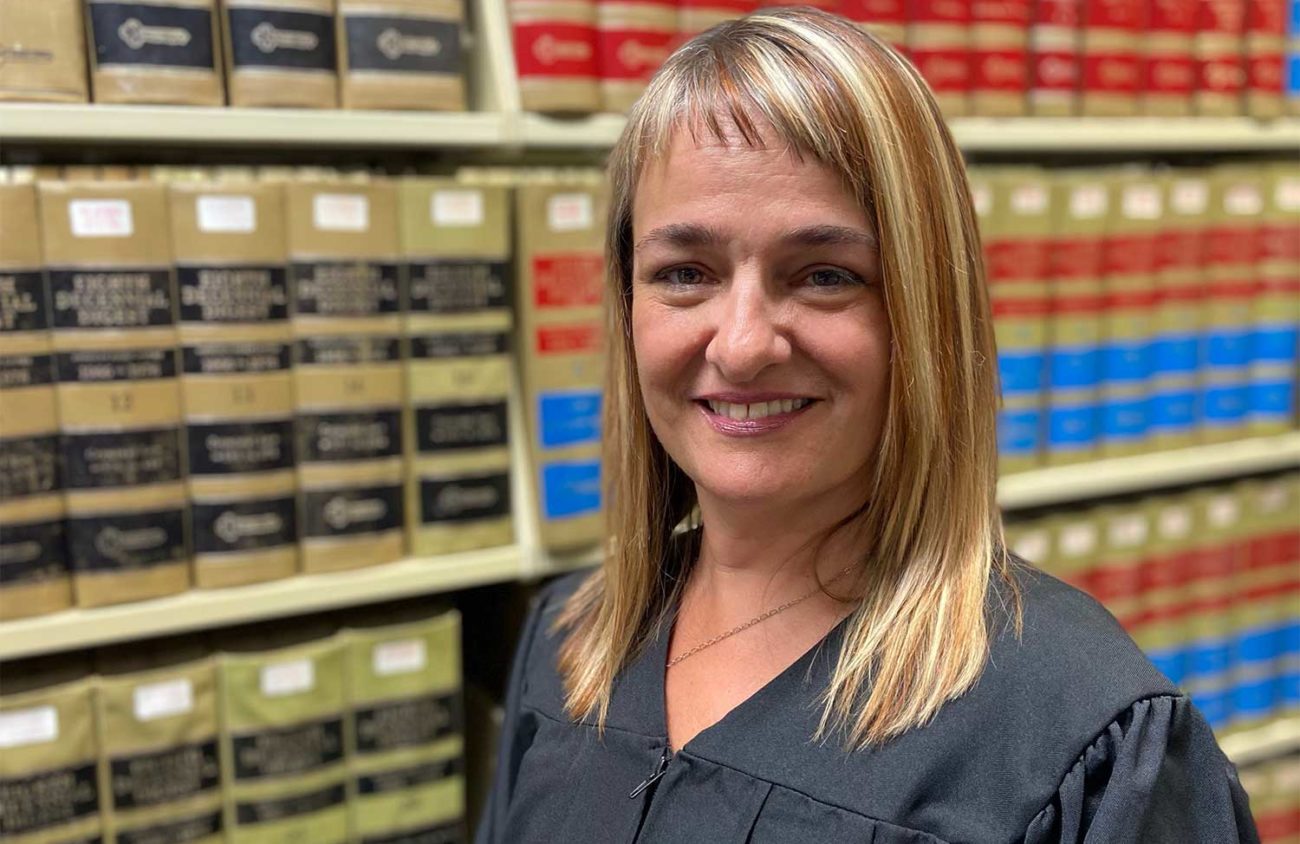For the first time since 2006, the race to serve as a judge on the Lane County Circuit Court is contested.
In the past, judges have retired midterm, allowing the governor to appoint a successor who usually runs unopposed. But the Nov. 8 general election will have Judge Beatrice Grace, who was appointed August 9 by Gov. Kate Brown, and state Rep. Marty Wilde in a race to serve as Lane County Circuit Court judge. The position is nonpartisan, but Wilde is a registered Democrat and Grace is unaffiliated.
Being appointed involves a thorough process of being judged by one’s legal peers, says Grace, who before attending law school as a single parent and practicing civil law in Eugene worked as an emergency room nurse. Grace says her background brings a perspective missing from local judges and that she is committed to her values of nonpartisanship on political matters.
Wilde says he has more trial experience than Grace and that voters should have a say in who serves as judge. He says that voters should know where their judge stands on values.
Circuit court is the lowest level of the state judicial branch. It rules on a variety of cases that include domestic relations, crime, adoption and small claims. A circuit court judge is elected for a six-year term but doesn’t have term limits.
Before attending law school, Grace worked as a registered nurse for 25 years in emergency rooms, spending most of her career at PeaceHealth Cottage Grove Hospital. She says she decided to go to law school, which meant first earning a bachelor’s degree in political science at the University of Oregon. She was inspired to pursue civil law based on her nursing experience seeing patients affected by the medical system.
“It wasn’t a question that doctors or insurance companies were going to have representation,” she says. “But it was very hard for injured people to get representation because they just don’t have the funds to drop into a case — and those cases are expensive, sometimes hundreds and hundreds of thousands of dollars.”
Due to her recent appointment, Grace hasn’t yet faced an election, but she says the application process for the appointment was thorough. She underwent examination from a community of Lane County lawyers, all of whom practice different areas of law. It’s a process where a candidate has to pass muster with much of the state’s legal community, she says.
“You have to make it through your own community,” she says. “Then you are sent onward in the process to the governor’s panel, which is again a wide swath of people that are at a different level or statewide level: Department of Justice attorneys, governor’s general counsel, still some local attorneys that maybe practice in the federal court system.”
Grace, who is divorced, says she’s the only one on the bench who’s a single parent. It’s a perspective that she says is needed in the judicial system. “I have cases where I have litigants in front of me in family matters that are going through dissolutions,” she says. “It’s a ‘he said, she said,’ and I understand intimately how that looks and how it feels from your perspective because I’ve been a litigant myself.”
Grace graduated law school in 2015. She was a judicial clerk for the then-Lane Circuit Court Judge Mustafa Kasubhai for a year and then worked as an associate attorney for five years at Eugene law firms. (Kasubhai is now a federal magistrate judge.) According to her application to the governor’s office for the judicial appointment, 100 percent of her legal experience in the past five years have been civil cases, which include personal injury lawsuits. As a judge, she says she’s been involved with criminal case hearings.
Grace says that she wants voters to know that she’s dedicated to being nonpartisan and impartial. “I want to help people in Lane County know that I’m there every day to ensure that their rights to an impartial judiciary are sacrosanct,” she says.

Wilde also applied for the two vacant positions created by retiring judges earlier this year but didn’t make the cut. Before Brown announced her appointments to the circuit court, Wilde filed to run in the November election for the judicial seat.
When Wilde found out who the appointees were, he says he realized he had more legal experience than Grace. Wilde has worked as a public defender in Texas and Klamath Falls and served as deputy district attorney in Linn County. And for nearly 30 years he’s worked as a judge advocate in the Oregon Air National Guard, a court system that works differently than civilian courts. In the past five years, 100 percent of Wilde’s cases tried were administrative-related, but he says he’s tried a variety of cases in his career.
“I practiced in every area of law that comes before the court. I’ve done claim side personal injury work. I’ve done criminal defense. I’ve done prosecution. I’ve done juvenile. I’ve done family law, probate,” he says.
Running for circuit court judge is a way to educate voters about who their judge is, he says, and what’s prompted him to run is his values and experience.
Having been in a prominent place in the Lane County community, such as serving as president of the Eugene City Club and his two terms in the Oregon House of Representatives from 2019 to the beginning of 2023, he says people know who he is. “If we’re gonna elect judges, they should know the community they serve,” he adds.
Wilde’s campaign for judge comes after alleging in 2021 that his legislative district was gerrymandered to favor Republicans and to remove him from office after saying the state legislators were drawing up favorable legislative districts.
But he says he’s always been interested in becoming a judge and considered applying before running for the state Legislature in 2018.
Wilde was motivated to run by the U.S. Supreme Court’s overturning of Roe v. Wade, the 50-year-old decision that made access to abortion a constituional right. “If the federal government was not going to protect reproductive freedom, then we needed state judges who would,” he says.
On reproductive rights, Grace doesn’t answer whether she’s pro- or anti-abortion, but that the U.S. Supreme Court’s legal reasoning and representations about the history of abortion were incorrect and incomplete. That’s why, she adds, judges should remain nonpartisan on politics. True democracy, she says, depends on judges who are impartial, balanced and fair — especially at a time when society faces a lot of partisanship.
“When it’s your day in court, you want to know that the judge is going to hear your side and hasn’t already walked into the courtroom having decided the merits or your case based on their own personal or political biases,” Grace says. “Judges are there to apply the law to your particular case, and do the same for every person, for every case, every day.”
